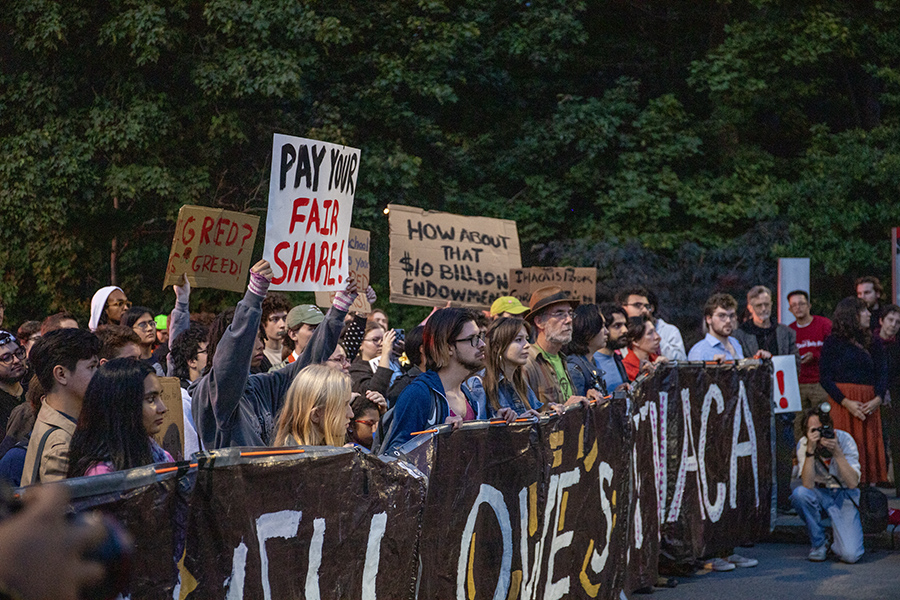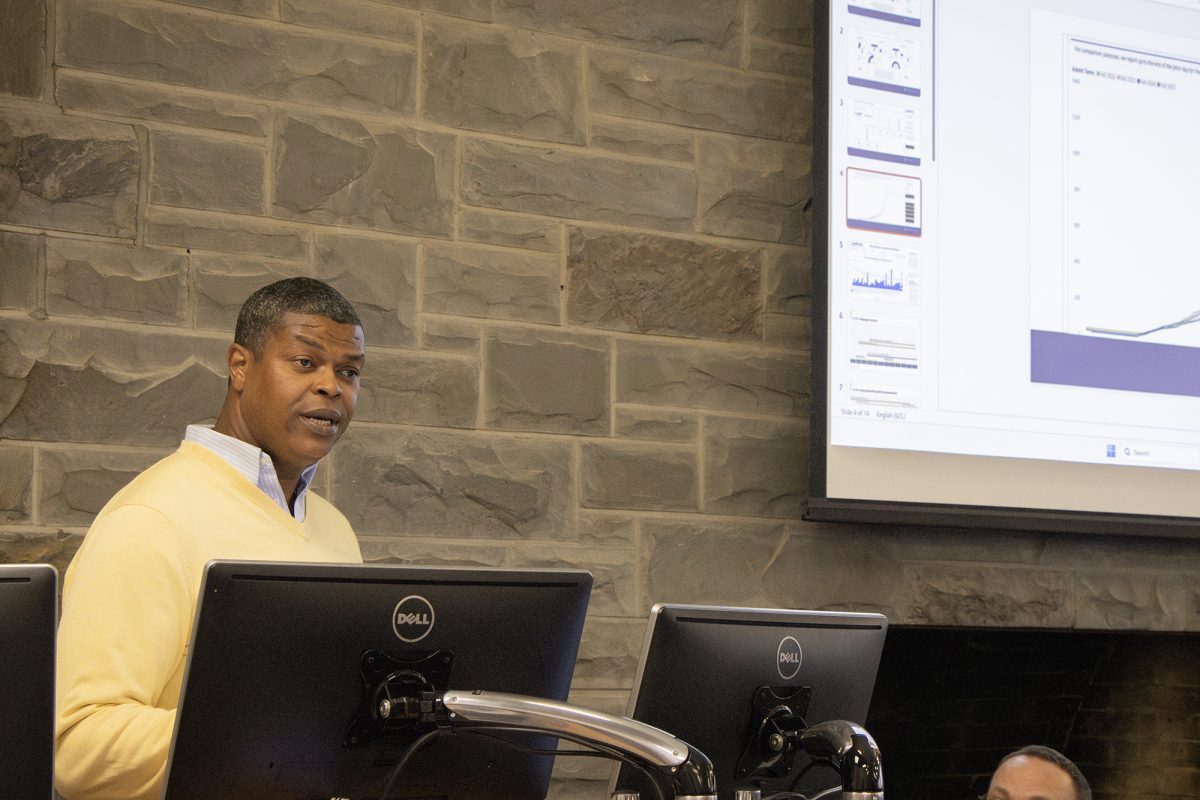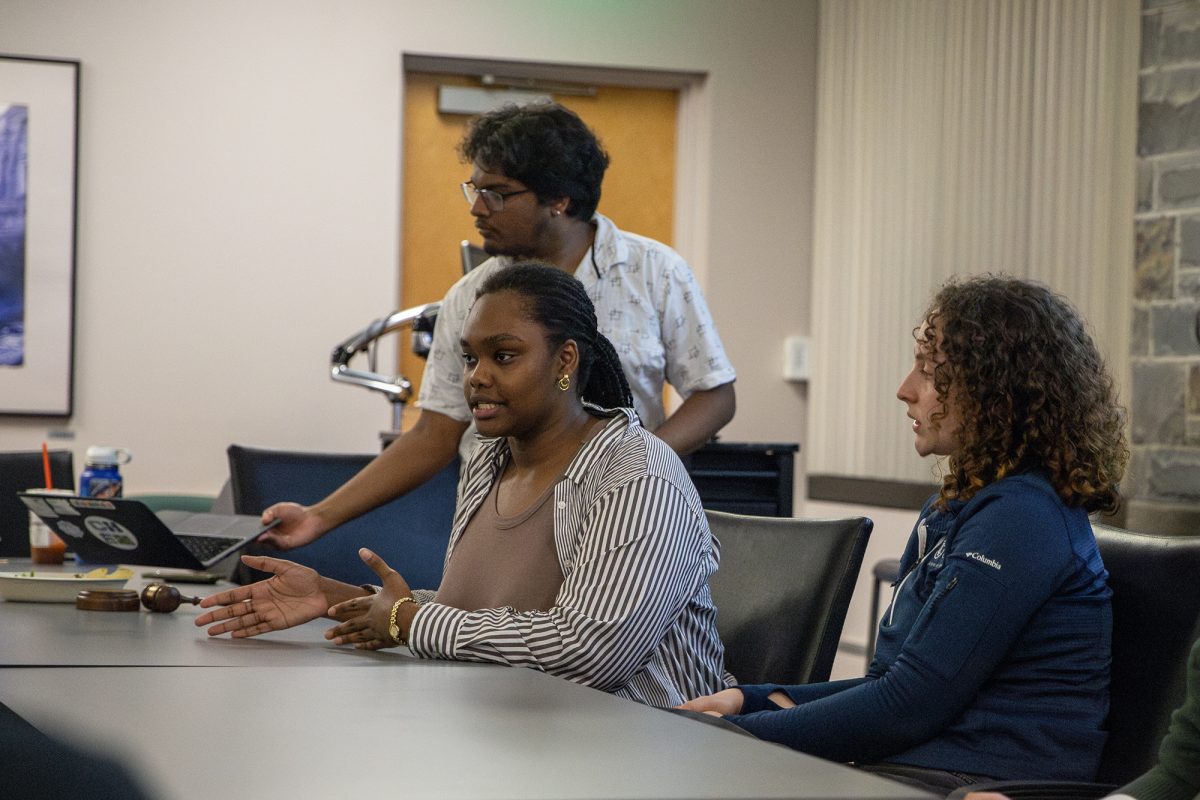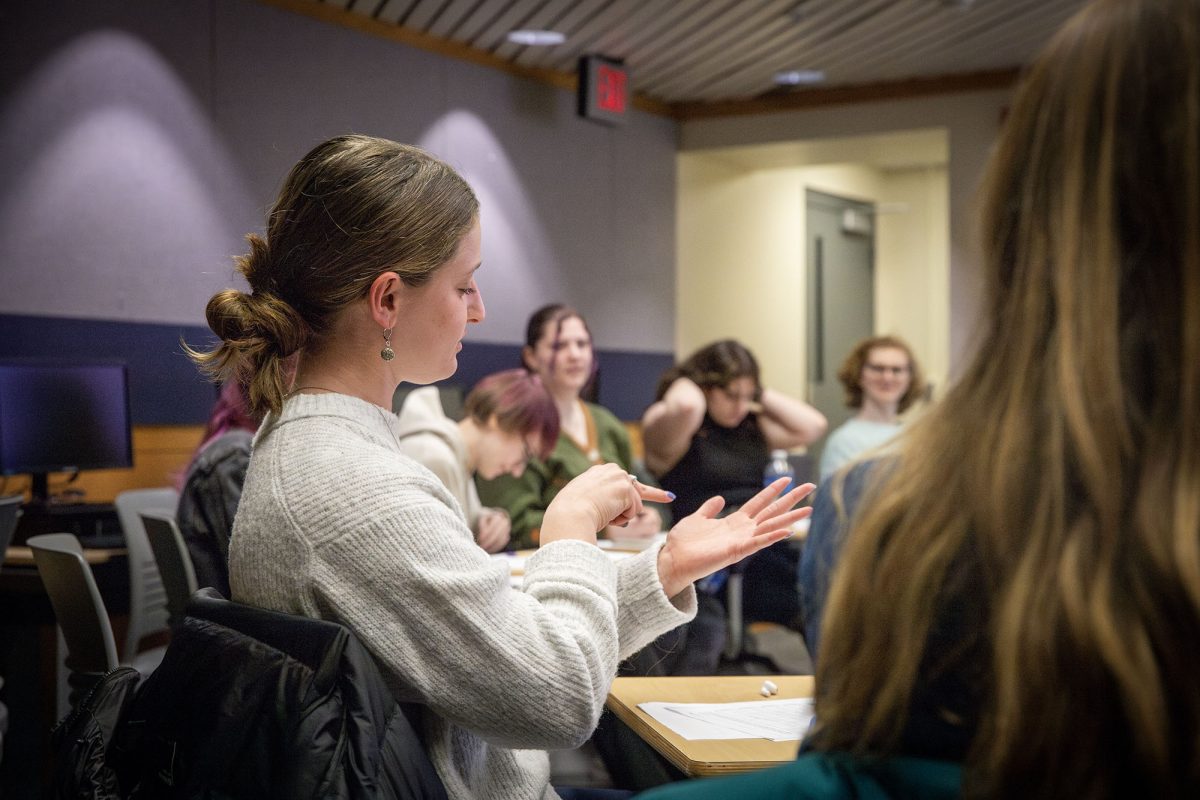After months of negotiations and public protests calling for Cornell University to contribute more money to the City of Ithaca, the Common Council will take the Memorandum of Understanding to a vote Oct. 11 — once made, the deal will not expire until 2044.
An MOU is a written agreement between two groups like Cornell University and Ithaca to outline their partnership and collaborations. The piece of the MOU that has garnered most attention since Cornell and Ithaca came to their first agreement in 1995 is the payment in lieu of taxes (PILOT). Like other educational institutions, nonprofits and religious organizations, Cornell has a significant amount of property tax exemptions.
Nearly 60% of property in Ithaca is exempt from taxes, cutting out a large part of the city’s possible tax revenue and placing a greater tax burden on Ithaca residents. The PILOT under the city’s MOU with Cornell partially funds city services and infrastructure despite there being no legal obligation for Cornell to do so.
Cornell owns about $8 million of taxable property in the City of Ithaca and pays about $96,000 in taxes. It owns $2.7 billion in tax-exempt property, according to data from the 2022 assessment roll and confirmed by Jay Franklin, director of the Tompkins County Department of Assessment.
If all of Cornell’s properties were taxable and Cornell paid the tax rate for 2023 — which is $11.98 per $1,000 in property value — it would pay roughly $32.5 million in taxes. However, Franklin said that because of the city’s budget needs and how that would impact the tax rate, Cornell would more realistically pay about $15.5 million in city taxes since the tax rate would drop to about $5.63. As previously reported by The Ithacan, Franklin estimated that if Cornell University and Ithaca College paid taxes on all their properties, the property tax for an average house in Ithaca would drop between 40–45%.
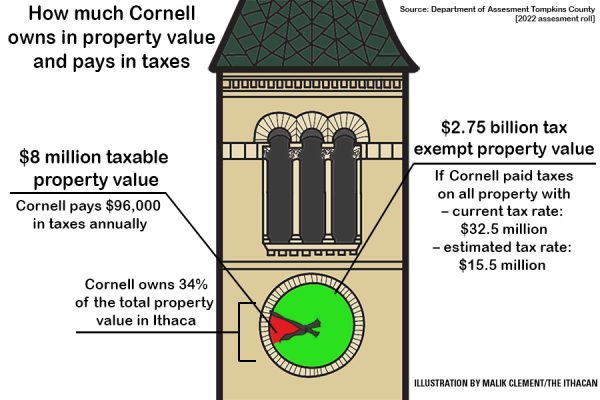
Under the current MOU, Cornell contributed a $1.6 million PILOT to the city in 2023. The Common Council and Cornell negotiation team have held a series of meetings since April to discuss a new MOU because the previous one is set to expire at the end of 2023. On Aug. 11, Cornell offered to give $3.15 million annually, which the city responded to with a request for $5 million.
Cornell made a final offer of $4 million annually, invoking a rally Sept. 18 at Cornell’s Ho Plaza, where about 150 members of the Ithaca community gathered to demand a larger contribution. The public showed its displeasure with Cornell again Sept. 20 at the Common Council meeting where 37 of about 100 attendees gave their input to council members. This is not the first time community members have organized around the issue of Cornell’s contributions to the city. Former mayor Caroyln Peterson asked for a PILOT increase after the economic crash in 2008, as did former mayor Svante Myrick in 2013.
5th Ward Alderperson Robert Cantelmo said that on Oct. 4, Mayor Laura Lewis is going to present the recommended 2024 budget to the Common Council, which will be followed by multiple hearings to set expenditure priorities and revenue needs. After the budget is voted on in the first week of November, the tax rate is set and cannot be changed until the next year.
“I’ve certainly called on Cornell to guarantee a one-year stopgap payment of $4 million so that we can evaluate the deal on its merits without worrying about the immediate fiscal burden that it might place on the taxpayers,” Cantelmo said. “But technically speaking, if there is no agreement in place, [Cornell] will not authorize a contribution. … If the city were to reject the deal, it would have to set a tax rate to make up that $1.6 million it will no longer be receiving.”
Cantelmo said that if the city is able to reach a stronger deal with Cornell, that money would help to keep any tax increase as flat as possible. He said another major piece of the MOU is the agreement term, which is currently set at 21 years before the next MOU would expire.
“Every time this MOU gets renegotiated, there is an appropriate increase in what Cornell contributes,” Cantelmo said. “With a 20-year term, my fear is that that just extends the life of an agreement before Cornell has to ratchet up more of a contribution to match its footprint.”
The Make Cornell Pay coalition is advocating for an equitable increase in Cornell’s PILOT; full transparency from the city about negotiations; opportunities for community input before the final negotiation concludes; and the addition of a community stakeholder PILOT oversight commission in the new MOU. The chair of the coalition published a statement that said the city should not accept Cornell’s offer of $4 million and rejected budgetary pressure as a reason to go forward with the deal.
The Cornell Student Assembly also published a recommendation in March, titled “Make Cornell Pay,” authored by 4th Ward Alderperson Jorge DeFendini ’22 and senior Sanvi Bhardwaj. The resolution of the bill made demands in line with the Make Cornell Pay campaign.
Support for an increase in Cornell’s annual contribution has also come from the Ithaca Democratic Socialists for America, which has led the campaign for FreeCAT. Aurora Rojer, secretary of the Ithaca Teachers Association, member of Make Cornell Pay and labor chair of the Ithaca DSA, said the main point that the DSA and Make Cornell Pay are trying to express is that Cornell can and should pay much more than $4 million to support the city.
“We as a city need way more and deserve way more,” Rojer said. “They should be giving an equal amount to the school district. … I really think that $150,000 [MOU] increase [to ICSD] is thanks to Make Cornell Pay, but that is the smallest drop in the bucket of our budget as a school district. That’s like a sneeze to Cornell.”
Rojer said that while members of the Common Council also want Cornell to contribute more, the DSA and the Make Cornell Pay coalition are more willing to take risks and make larger demands.
“We’re not going to get anything if we just take them at their word and take the terms that they’re giving us,” Rojer said. “I think that social movements in general, their real power is expanding what is possible, and that’s what we’re trying to do here.”
Franklin said Cornell owns just a piece of the overall tax-exempt property in the city, which includes religious institutions and the Ithaca City School District, among others. He said Cornell is not underpaying their share according to current New York State law.
“I don’t think the city needs to double their spending all of a sudden,” Franklin said. “It isn’t about more money for the city. It’s about tax relief for all of the residents of the city. … The city’s tax levy for 2023 was only $29 million. You can’t have Cornell all of a sudden paying $33 million. One they would be paying more than the property taxes that were levied, but then everybody else wouldn’t pay anything. So you need to readjust.”
Joel M. Malina, vice president for University Relations at Cornell, said in an email statement to The Ithacan that the MOU with the city is only one part of Cornell’s annual community contributions that exceeds $30 million. Cornell also has contribution agreements with TCAT and the Ithaca City School District. Cornell’s media relations also said Cornell financially supports the Community Housing Development Fund, local nonprofits and expenditures tied to municipal services.
“Cornell and the City of Ithaca have long recognized the importance of each entity to the other and to the quality of life of community residents,” Malina said. “We are pleased that a team of Cornell and City officials were able to reach an agreement in principle on a new, historic 21-year Memorandum of Understanding that will dramatically increase the university’s voluntary contribution to the City and give the City far greater discretion to spend the dollars to help meet the needs of its residents.”
Many large colleges have some form of contribution through a PILOT. In 2021, Yale University increased its PILOT agreement with New Haven, Connecticut, to $135 million, which will be paid in full over the next five years. In 2022, Princeton University paid the Town of Princeton, New Jersey $11.6 million in sewage and property taxes, of which $6.2 million were eligible for exemption. In fiscal year 2022, Harvard University contributed almost $10.8 million to Boston through a PILOT, although the city requested $13.7 million.
Ellen David Friedman is an Ithaca local, retired director of organizing for the National Education Association in Vermont and current board chair of Labor Notes, a national labor education and media project. She was also a speaker at the Ho Plaza demonstration where she shed light on the relationship between labor unions and Cornell’s PILOT.
“People are going to negotiate a contract to, let’s say, improve your pay, but … that’s not necessarily going to help make your community better,” David Friedman said. “The way these two things connect is that working people have an interest in good, strong, healthy communities that have strong enough budgets to pay for these [communal services and infrastructure].”
David Friedman said wealthy institutions like Cornell should contribute significantly to the community they reside in despite how much they are required to give under tax law.
“The principle behind that which has made all of these institutions tax exempt for many decades is no longer reflected in actual reality,” David Friedman said. “In no possible measure can they be considered as poor or unable to pay a fair share to the community that houses them.”


